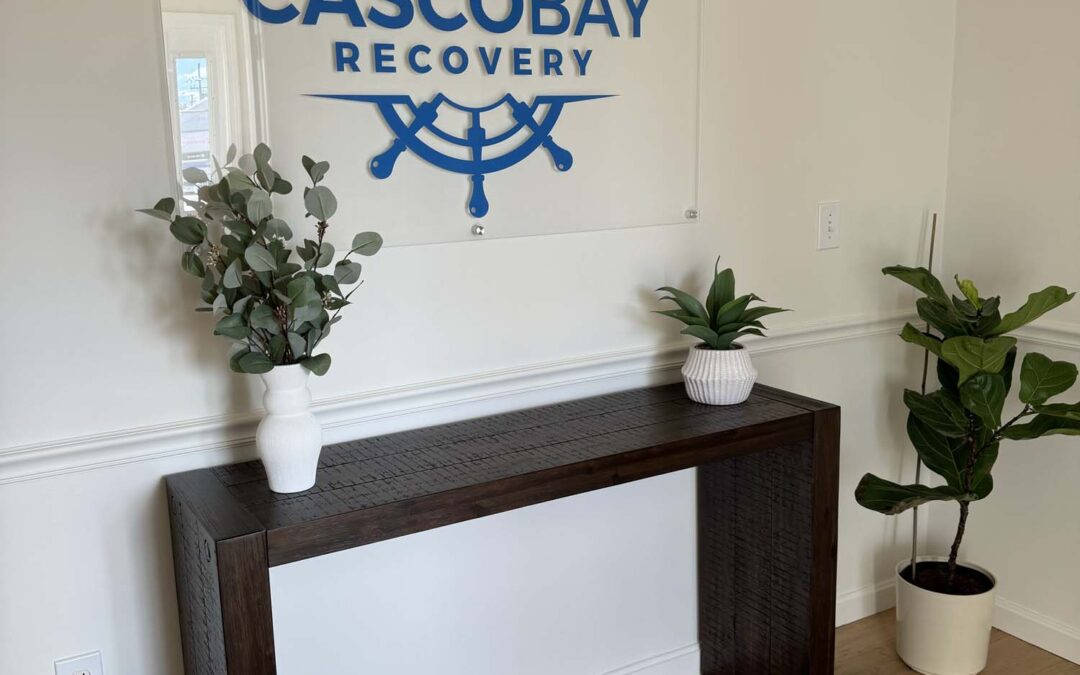It’s no secret that the withdrawal symptoms associated with drug abuse and addiction can be uncomfortable and, in some situations, downright dangerous. The severity of these symptoms can vary based on the substance or substances being abused and the severity of the addiction. Certain medications have been FDA-approved in order to alleviate some of the symptoms and address any potential medical issues that could occur.
Addressing withdrawal symptoms early on is just one of the many benefits of medication-assisted treatment. Let’s take a look at some of the other benefits.
What Is Medication-Assisted Treatment?
Medication-Assisted Treatment (MAT) is a term used to describe the use of medication as part of the overall addiction treatment process. These FDA-approved medications are often used during the detox process but can also be used during the treatment process to accompany therapy and counseling.
These medications not only can address some addiction issues such as withdrawal symptoms and cravings, but they can also be effective in treating any accompanying mental health conditions and physical ailments.
While MAT is traditionally used to help treat opioid and alcohol addiction, it has also proven to be effective in treating other types of addictions as well as mental health disorders.
How Effective Is Medication-Assisted Treatment?
Medication-assisted treatment, in conjunction with therapy and counseling, has been proven to not only be effective but also been shown to increase the chances of recovery in many who are suffering from addiction.
Some of the biggest ways that MAT has proven to be effective are:
- Improving survival rate
- Improving birth outcomes in pregnant women who suffer from addiction
- Reducing the chances of a relapse
- Increasing the likelihood of someone suffering from addiction completing treatment
The success rate amongst those who participate in medication-assisted treatment is also incredibly high. In fact, close to 90% of all people who participate in MAT are still sober at the 2-year mark.
What Medications Are Approved for MAT?
As we touched on above, the two most common types of addiction that medication-assisted treatment is used for are opioid addiction and alcohol addiction. Let’s take a look at some of the medications that have been FDA-approved to treat both of these disorders.
Alcohol Addiction
 Disulfiram is used as a deterrent to keep someone from drinking. It is often prescribed once the detox has been completed and they are in the early stages of treatment. If someone were to drink alcohol while taking disulfiram, it would create an adverse and unpleasant reaction that would, in theory, keep them from drinking again.
Disulfiram is used as a deterrent to keep someone from drinking. It is often prescribed once the detox has been completed and they are in the early stages of treatment. If someone were to drink alcohol while taking disulfiram, it would create an adverse and unpleasant reaction that would, in theory, keep them from drinking again.
Acamprosate is prescribed to help reduce cravings and alleviate some of the withdrawal symptoms associated with detox. Specifically, acamprosate has been known to effectively treat anxiety and insomnia.
Opioid Addiction
There are three medications that have been FDA-approved for the treatment of opioid addiction. They are methadone, naltrexone, and buprenorphine.
Methadone is by far the most common and well-known medication used to treat opioid addiction. Methadone has been used to treat opioid addiction since the 1970s thanks in large part to its effectiveness when it comes to managing cravings. It does this because it actually binds to the same receptors in the brain that opioids attach themselves to. As a result, even if someone were to relapse and take an opioid while on methadone, they would feel none of the effects of the opioid.
Buprenorphine has been FDA-approved for opioid addiction since the early 2000s. Much like methadone, it also binds to those opioid receptors. Unlike methadone though, the bind is only partial instead of full.
Naltrexone is the most expensive of the three medications and, therefore, is the least common. Much like the other two, it prevents the enjoyable effects of opioids. Like methadone, this means that if someone relapses while taking naltrexone, they won’t experience any of the desired effects.
What Are the Benefits of MAT?
While helping someone with their sobriety is the biggest benefit of medication-assisted treatment, it is hardly the only one. Let’s take a look at some of the others.
Helps with Detox
Detoxing is the process by which the body and the brain rid themselves of any and all illicit and harmful substances. This is crucial to the overall treatment process because without detoxing the body and brain can’t truly begin to heal.
The detox process is hardly an enjoyable one. As you can imagine once you stop giving the body and brain something that it has grown dependent on to the point of addiction it is going to rebel. Depending on the type of addiction and the severity, these symptoms can range from minor to potentially dangerous medical issues if not treated and addressed.
This is why it is strongly recommended that the detox process be done under the care and supervision of trained medical professionals at either a medical facility, a detox center, or a treatment center that also offers detox services. By being under medical observation, you can be prescribed medications that are used to help treat and alleviate some of these withdrawal symptoms, making the detox process more comfortable.
Reduces the Chances of Relapse
 Many of the medications used in the medication-assisted treatment are designed to block cravings and prevent the person from wanting to drink or do drugs again. In fact, some, such as disulfiram and methadone actively play defense against substances of abuse, either making the person sick if they try to use again or completely eliminating any of the effects of the substance.
Many of the medications used in the medication-assisted treatment are designed to block cravings and prevent the person from wanting to drink or do drugs again. In fact, some, such as disulfiram and methadone actively play defense against substances of abuse, either making the person sick if they try to use again or completely eliminating any of the effects of the substance.
Help Prevent or Reverse Addiction-Related Medical Issues
While substance abuse and addiction can take a toll on a person mentally, they can also do a lot of damage to them physically. Substance abuse and addiction can lead to significant health issues such as:
- Liver and lung issues
- Heart problems
- Muscle and joint issues
- Mental health disorders
- Brain damage
- Stroke
- Overdose
Many of the medications used during MAT can either address these issues so they don’t get worse or prevent them from occurring.
Improves the Chances of Long term Sobriety
While medication-assisted treatment has been proven to be effective during detox and treatment, a continued MAT regimen even after treatment has been completed has been proven to also be effective in helping a person maintain their sobriety long-term.
Studies have shown that people who are put on a regular methadone program are far less likely to use or abuse opioids in the future.
Increases the Chances of Successful Treatment Completion
As with anything in life, the more comfortable a person is doing something the more likely they will be to see that activity through to the end. The same goes for enjoyment. While treatment isn’t “enjoyable” it can be made more comfortable with the help of medications to help with their mental and physical issues.
The more comfortable a person feels, both physically and mentally during treatment, the greater the chances are they will see their treatment through to the end.
Who Is Medication-Assisted Treatment Designed For?
Medication-assisted treatment is ideal for anyone seeking treatment for an opioid or alcohol addiction. Depending on the severity of the addiction though, and any underlying mental or physical conditions that accompany it, MAT can be used to treat other types of addictions and mental health disorders.
Medication-assisted treatment is typically only provided to those who are in an inpatient treatment program since they need to be constantly monitored and have access to medical professionals during treatment.
Does Insurance Cover Medication-Assisted Treatment?
Depending on your insurance provider and the plan that you have, MAT might be covered either partially or in full. Some plans might cover everything while others might only cover the use of certain medications.
If you are unsure about what your insurance plan does and doesn’t cover, you can reach out to your insurance company or you can contact us at Casco Bay Recovery via our insurance verification page. We will look over your policy and let you know what is and isn’t covered and then go over any out-of-pocket expenses you might be responsible for before treatment begins.
Want To Know More About the Benefits of Medication-Assisted Treatment?

While therapy and counseling have proven effective in treating substance abuse and addiction issues, only focusing on those two forms of treatment might not get the job done. In some cases, medication-assisted treatment might also be recommended as a way to complement therapy and counseling.
At Casco Bay Recovery, we understand the importance MAT has in treating certain types of addiction, particularly alcohol and opioid addiction. That’s why we offer a medication-assisted treatment program for those who can benefit from it.
If you or someone you know is suffering from addiction and could benefit from either medication-assisted treatment, or one of our other treatment programs, contact us today. We want everyone that comes to see us go on leading happy, healthy, and sober lives.







